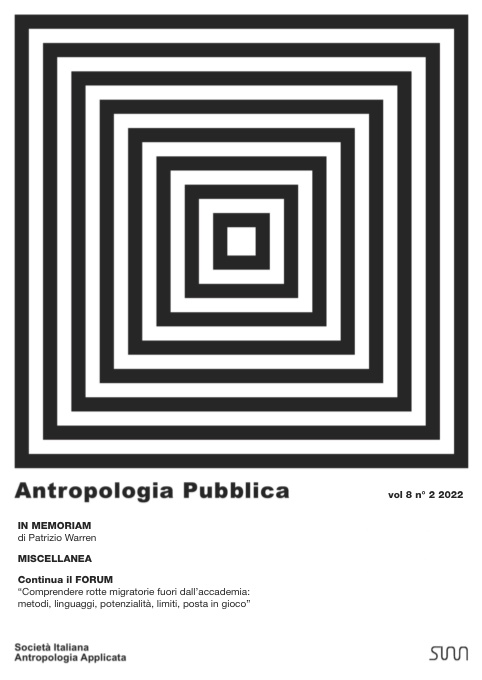Il confine del Brennero. L’etnografia femminista di fronte alla mobilità razzializzata delle donne migranti
DOI:
https://doi.org/10.1473/anpub.v8i2.276Palabras clave:
Borders; feminist ethnography; mobility; intersectionalityResumen
This contribution is part of a research carried out on the Brenner border, between Italy and Austria (from 2017 until today), whose goal was to understand the phenomena of selection and redistribution of migrants in the European area. The experience of crossing borders, and of secondary movements in Europe, becomes particularly interesting if we consider the construction of the categories of gender, race and social class produced by migration policies and determining the destinies of the subjects involved in intra-European mobility. In the specific case of women who cross European borders, by coercion or by choice, the renegotiation of the motivations to move and the forms of dependence on the networks take place starting from the need to adapt to the transformations of border policies, to the needs of the labor market, the impossibility of being admitted to the space of life. We will therefore examine the phases of greater or lesser visibility of the Brenner border, the consequences of this in the lives of some migrants encountered during the crossing attempts, their narratives on the experience of the border. The methodological perspective of the research is in continuity with the tradition of feminist ethnography. It allows us to analyze the consequences of racial, sexual and class profiling, in the control of mobility within the European space. Ethnography is here a practice of observation, relationship, analysis and aims to promote greater social justice through a responsible ethics of anthropological research.



